
On March 19, 2019, the Government of Malawi, through the Ministry of Finance, Economic Planning and Development, submitted a formal request to the World Bank for assistance to conduct a Post Disaster Needs Assessment (PDNA) of the floods.
The following is a list of all conten labeled as "Risk Identification & Assessment"

On March 19, 2019, the Government of Malawi, through the Ministry of Finance, Economic Planning and Development, submitted a formal request to the World Bank for assistance to conduct a Post Disaster Needs Assessment (PDNA) of the floods.
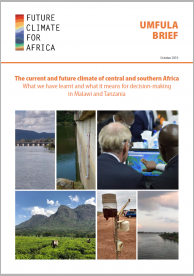
After 4 years of research by a multi-disciplinary team and co-production in partnership with government staff, the UMFULA project has released a briefing note that discusses "The current and future climate of central and southern Africa: What we have learnt and what it means for decision-making in Malawi and Tanzania".
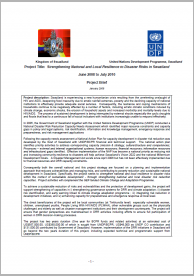
This project strategy is focused on a planning and implementation approach that reduces vulnerabilities and managing risks, and contributing to poverty reduction and sustainable national development in Swaziland.

The report presents findings on the assessment of progress and experiences in mainstreaming disaster risk reduction into national development frameworks in Malawi. The assessment was commissioned jointly by the secretariat of the Southern African Development Community (SADC), ECA and UNISDR.
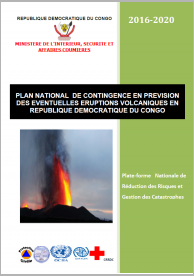
This National Contingency Plan covers the period from 2016-2020 and is specific for the responsible management of a possible volcanic eruption in North Kivu Province whose lives of more than one million (1,000,000) people and the entire ecosystem in Goma and its surroundings are between active volcanoes (Nyiragongo and Nyamulagira) and Lake Kivu, which has a high concentration of gases.
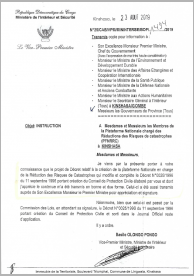
Official information stating the law project on National DRR Platform has been submitted and is under appreciation.
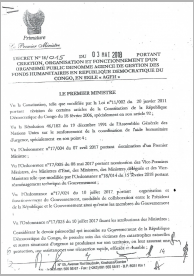
Creation, organization and operation of a public institution designated the Humanitarian Fund Management Agency in the Democratic Republic of the Congo.

This Strategy is divided into nine priority axes which are:
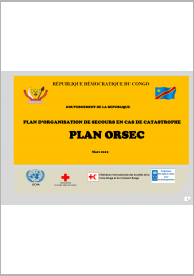
The ORSEC PLAN is intended to be a first step and a very important step in the perspective of the constitutional response to the question of national emergencies, constituting for the government a first-hand tool allowing it, not only, to know who is responsible for what task in case of which circumstance, but also the modality of activation of it and the coordination of intervention activities
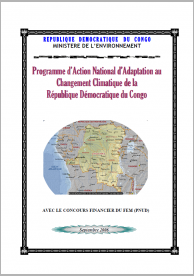
The objective of the NAPA Project to be proposed by the DRC is to develop a program covering the whole country and identifying urgent and immediate adaptation activities which respond to the current and anticipated harmful effects of climate change, including extreme events.